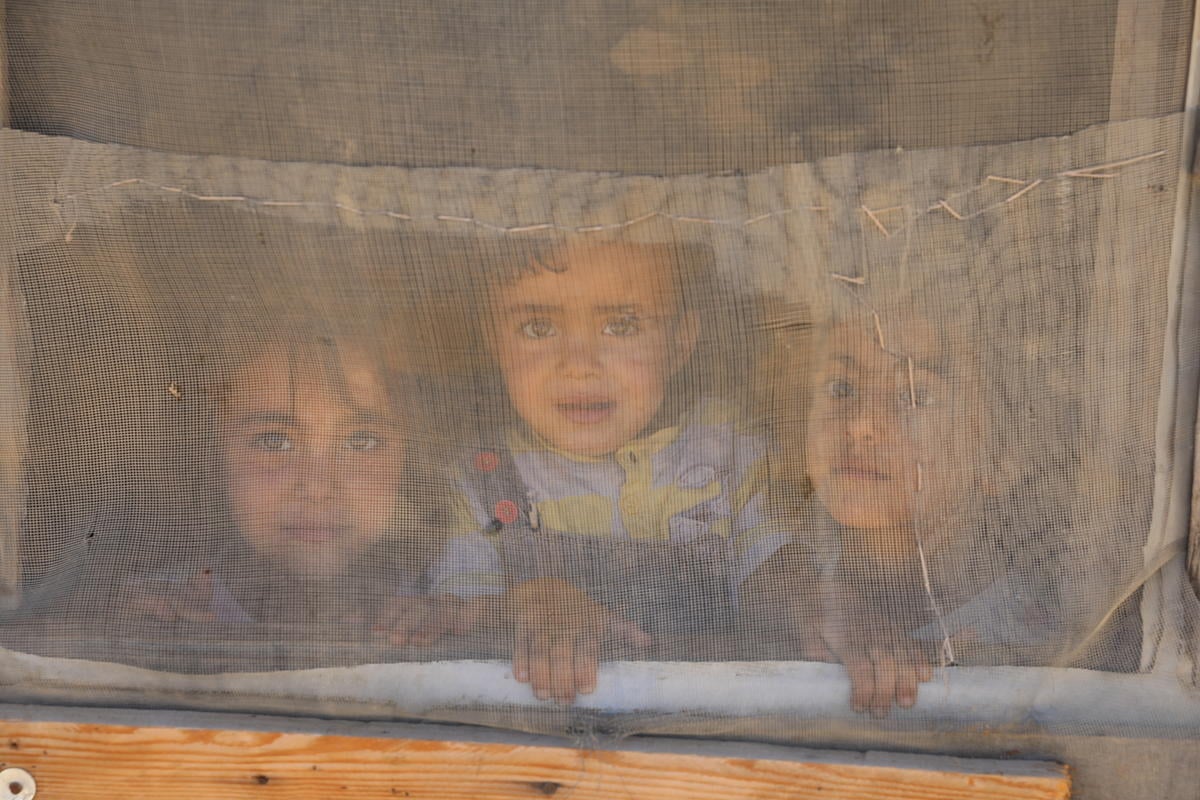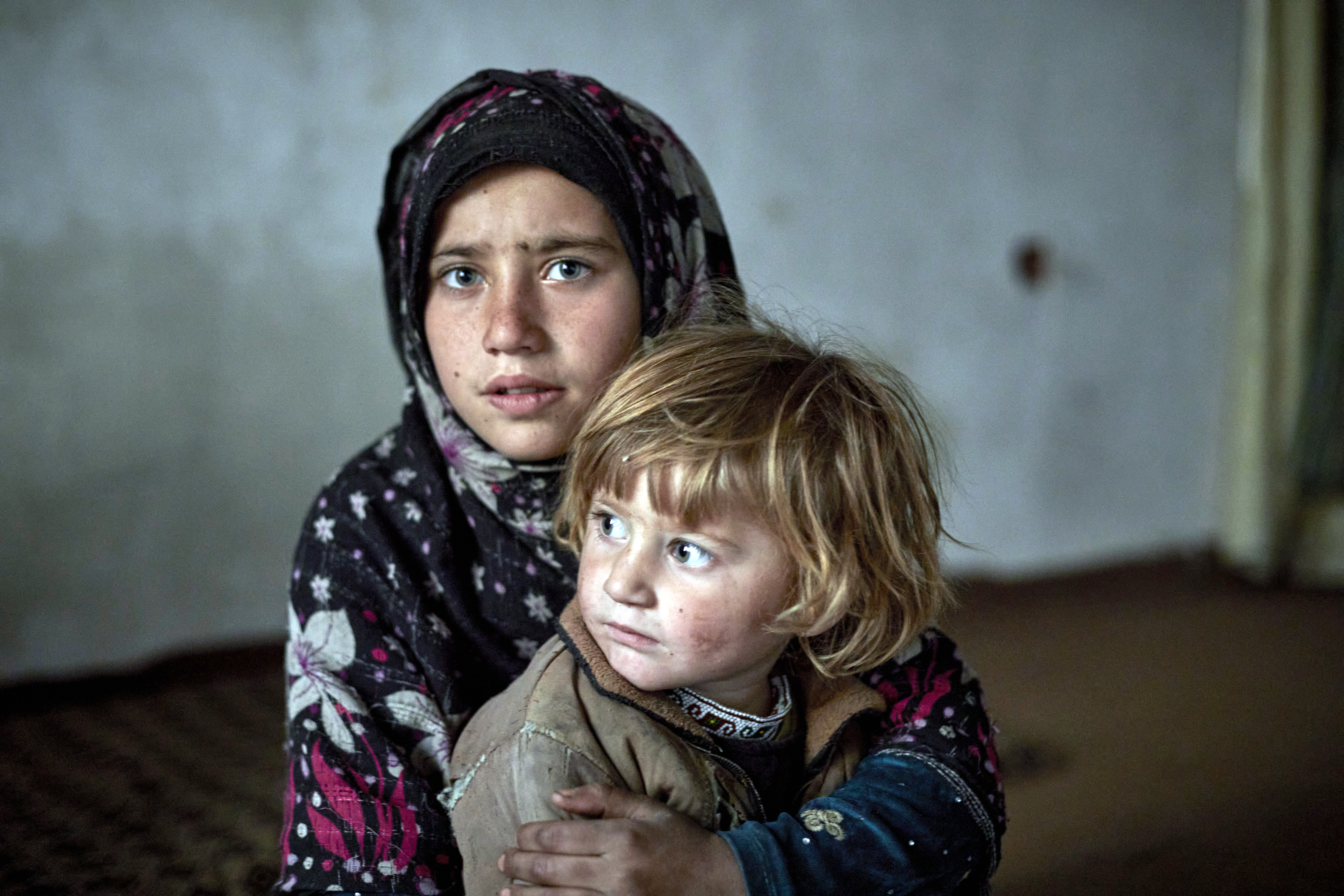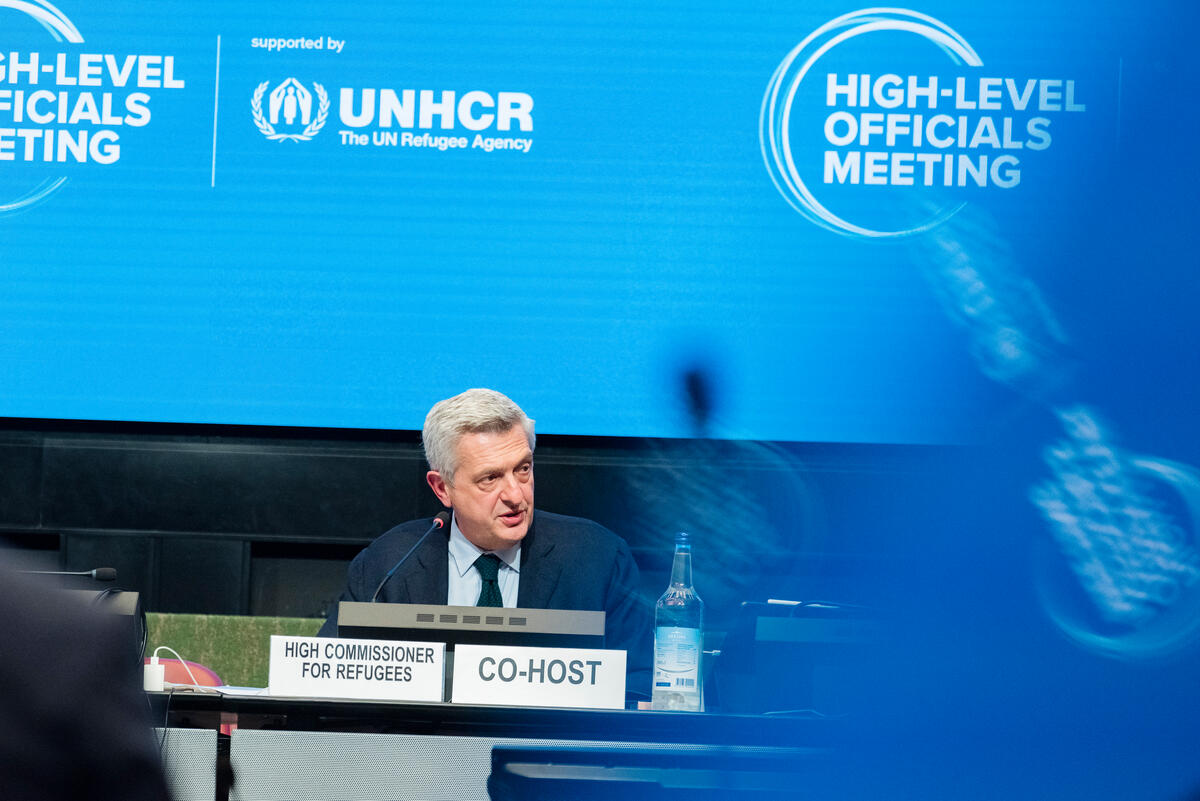New transit centre opens in Slovakia to resettle Palestinians stuck at Iraq border
New transit centre opens in Slovakia to resettle Palestinians stuck at Iraq border

BRATISLAVA, Slovakia, July 21 (UNHCR) - A new evacuation transit centre has been opened in Slovakia that will allow for 98 Palestinian refugees to be removed from the desert camp of Al Waleed near the Iraqi-Syrian border where they have been trapped for the last six years. They will stay at the new centre for up to six months while their final resettlement to other countries is arranged.
UNHCR has made closure this year of three camps housing Palestinian refugees trying to leave Iraq a goal because of the harsh living conditions. The highest priority is closing Al Waleed, a camp about 10 kilometres inside Iraq. Several countries have responded to UNHCR's appeal to resettle these refugees but are unable to reach them for interviews because of security concerns.
At the end of May there were 1,479 refugees in Al Waleed, 843 at Al Tanf in the no-man's land between Iraq and Syria near Al Waleed, and 391 Palestinian refugees at Al Hol, on the Syrian side of the border. A further 10,000 Palestinian refugees are in Baghdad.
After continuous attacks by local Iraqis, the first of the Palestinians now in Al Waleed fled Baghdad in 2003 but were not allowed to enter Syria. They stayed in the makeshift camp near the desert border under appalling conditions.
A large number of countries, including the United States, Brazil, Chile and several European countries, have resettled some refugees over the past two years and UNHCR has a target of closing the three camps by the end of this year.
The agreement on the humanitarian transfer of 98 Palestinian refugees from Iraq to the new transit facility in Humenne in north-eastern Slovakia was signed in the Slovak capital of Bratislava on Monday by UNHCR, the Slovak government and the International Organization for Migration (IOM). The 98 refugees are expected to arrive in late August and then move to final resettlement countries.
Vincent Cochetel, deputy director of the UNHCR Division of International Protection Services, thanked the Slovak government for its quick response to an appeal for help in removing the Al Waleed refugees from their desert location.
Slovak Interior Minister Robert Kalinak said his government was glad it had the capacity to offer a "period of safety" to these most vulnerable refugees. The representative of IOM, Argentina Szabados, said she hoped this model project would be duplicated by more European Union countries.
This is the second evacuation transit facility opened to help in resettling refugees at great risk, including the Palestinian refugees from Iraq. Another centre opened in Romania last year and has hosted Palestinian, Eritrean and Sudanese refugees while their onward resettlement is finalized.
Between the start of 2008 and the end of this May, UNHCR submitted the names of 2,902 Palestinian refugees from the three camps for resettlement; of those, 603 had departed for their countries of resettlement.









